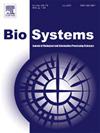Richness of emotion in people with dementia
IF 1.9
4区 生物学
Q2 BIOLOGY
引用次数: 0
Abstract
It is important to explore not only what is lost with the progression of dementia, but also what is left and what can be compensated or developed by adapting to the special needs of the conditions. Some studies suggest that as dementia progresses, people become less emotionally expressive and have difficulties in distinguishing between other people's facial expressions. On the other hand, it is also said as cognitive function declines, anger and anxiety increase, placing a burden on caregivers. Here we report the richness of emotions in people with dementia expressed in their interviews. We analysed the transcripts of 88 interviews of people with dementia (4.8 years after diagnosis), which lasted about 60–90 min, sometimes even longer. Those transcripts are valuable, as they show that people with dementia can express themselves verbally for a long time. From the analysis of the transcripts using Paul Ekman's basic emotions, we found that the strongest emotion expressed in the interviews was happiness. We also conducted a survey of the general public recruited through X about the emotions of people with dementia, and found that people without dementia imagined that the strongest emotion felt by people with dementia was fear. Our results suggest that the cognitive abilities and emotional states of people with dementia can be more robust than people without dementia typically perceive. It might be possible to augment happiness-related emotions by the support of those around people with dementia, and the cognitive efforts of the affected people themselves.
痴呆症患者的情感丰富性。
重要的是,不仅要探索随着痴呆症的进展而失去的东西,还要探索留下的东西,以及通过适应这种情况的特殊需要可以补偿或发展的东西。一些研究表明,随着痴呆症的发展,人们的情绪表达能力会下降,而且很难区分他人的面部表情。另一方面,也有人说,随着认知功能下降,愤怒和焦虑增加,给照顾者带来负担。在这里,我们报告了痴呆症患者在访谈中表达的丰富情感。我们分析了88位痴呆症患者(诊断后4.8年)的访谈记录,这些访谈持续了大约60到90分钟,有时甚至更长。这些文字记录很有价值,因为它们表明痴呆症患者可以长时间用语言表达自己。利用Paul Ekman的基本情绪对访谈文本进行分析,我们发现访谈中表达的最强烈的情绪是快乐。我们还对通过X招募的公众进行了一项关于痴呆症患者情绪的调查,发现没有痴呆症的人认为痴呆症患者感受到的最强烈的情绪是恐惧。我们的研究结果表明,痴呆症患者的认知能力和情绪状态可能比没有痴呆症的人通常认为的更强健。通过痴呆症患者周围的人的支持,以及受影响的人自己的认知努力,可能会增加与幸福相关的情绪。
本文章由计算机程序翻译,如有差异,请以英文原文为准。
求助全文
约1分钟内获得全文
求助全文
来源期刊

Biosystems
生物-生物学
CiteScore
3.70
自引率
18.80%
发文量
129
审稿时长
34 days
期刊介绍:
BioSystems encourages experimental, computational, and theoretical articles that link biology, evolutionary thinking, and the information processing sciences. The link areas form a circle that encompasses the fundamental nature of biological information processing, computational modeling of complex biological systems, evolutionary models of computation, the application of biological principles to the design of novel computing systems, and the use of biomolecular materials to synthesize artificial systems that capture essential principles of natural biological information processing.
 求助内容:
求助内容: 应助结果提醒方式:
应助结果提醒方式:


